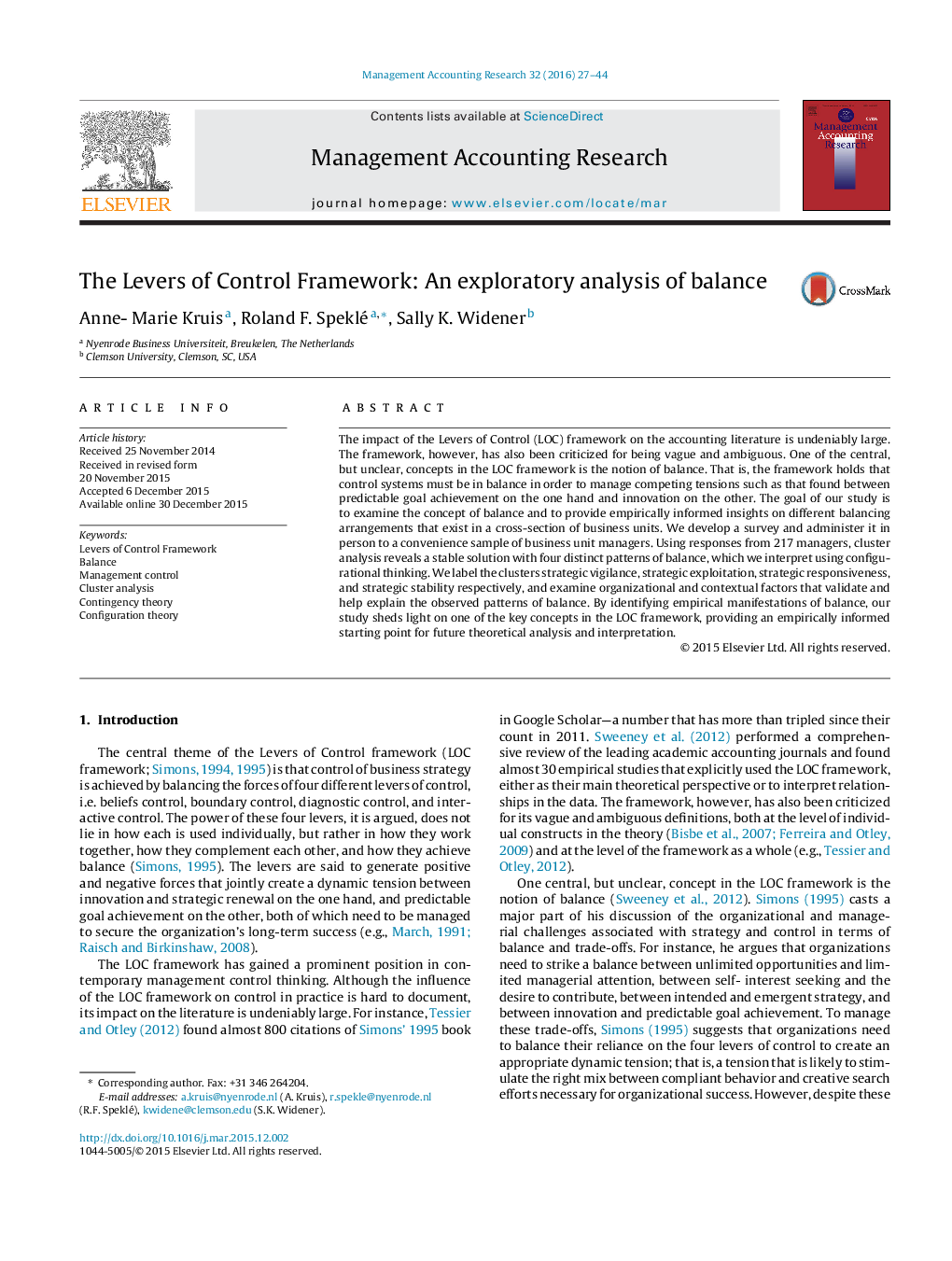| Article ID | Journal | Published Year | Pages | File Type |
|---|---|---|---|---|
| 1002534 | Management Accounting Research | 2016 | 18 Pages |
The impact of the Levers of Control (LOC) framework on the accounting literature is undeniably large. The framework, however, has also been criticized for being vague and ambiguous. One of the central, but unclear, concepts in the LOC framework is the notion of balance. That is, the framework holds that control systems must be in balance in order to manage competing tensions such as that found between predictable goal achievement on the one hand and innovation on the other. The goal of our study is to examine the concept of balance and to provide empirically informed insights on different balancing arrangements that exist in a cross-section of business units. We develop a survey and administer it in person to a convenience sample of business unit managers. Using responses from 217 managers, cluster analysis reveals a stable solution with four distinct patterns of balance, which we interpret using configurational thinking. We label the clusters strategic vigilance, strategic exploitation, strategic responsiveness, and strategic stability respectively, and examine organizational and contextual factors that validate and help explain the observed patterns of balance. By identifying empirical manifestations of balance, our study sheds light on one of the key concepts in the LOC framework, providing an empirically informed starting point for future theoretical analysis and interpretation.
